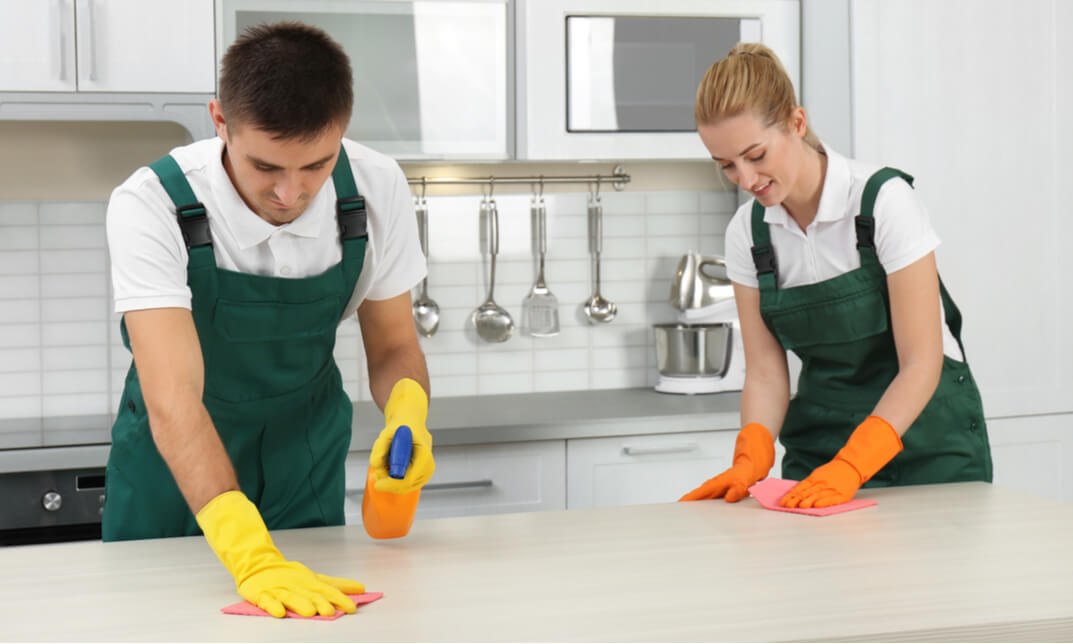No products in the basket.
Introduction:
A BICSc (British Institute of Cleaning Science) certificate, sometimes known as a British Cleaning Certificate. Which is a recognised accreditation for persons working in the cleaning sector. It displays the holder’s knowledge and abilities in cleaning procedures. As well as health and safety, and best practices.
Individuals must attend a BICSc training session. Have to pass a multiple-choice examination to get a BICSc credential. There are several certificate levels available, including Cleaning operatives, supervisors, and managers. The degree of certification will be determined by the course taken and the examination passed.
The following are some of the advantages of having a BICSc certificate:
- Increased work prospects and progression in the cleaning business
- improved cleaning procedures, health and safety, and best practices knowledge and skills
- Credibility and professionalism have improved.
- Possibility of better compensation
- Cleaning competence should recognise and validated.
It is crucial to note that earning a BICSc certificate is not a legal necessity for working in the cleaning sector. It can be useful for people looking for jobs or advancing their careers in this profession.
What is a British Cleaning Certificate?
The British Cleaning Certificate (BCC) is a professional certification programme for people and businesses in the UK cleaning sector. It intends to recognise and encourage high professional and quality standards in the cleaning sector. The BCC programme comprises training and evaluation in a variety of areas. Including health and safety, cleaning techniques and procedures, and customer service. Successful completion of the BCC programme displays a dedication to professional excellence in the cleaning sector. As well as may help individuals and businesses enhance credibility and commercial possibilities.
The British Institute of Cleaning Science (BICSc), is a renowned organisation in the UK cleaning sector. Who offers the BCC programme? The programme comprises many courses and tests designed to meet the needs of people. For varying degrees of expertise and work functions in the industry. Some of the courses available include the Cleaning Professional. Award for entry-level cleaning employees and the Advanced Cleaning Professional Award for more experienced cleaning staff.
Individuals must complete a sequence of courses and tests. Including written exams and practical assessments, to get the BCC. The BCC programme also includes continuing professional development. As well as a re-certification mechanism to guarantee that people and businesses keep their knowledge and abilities in the cleaning sector up to date.
The BCC is a well-known and respected accreditation in the UK cleaning sector. It is a significant asset for people and businesses trying to promote themselves as competent. As well as reliable cleaning service providers. It may also use as a standard for companies in the business to guarantee that their employees are trained and certified.
Why do you need it?
Individuals and businesses may must the British Cleaning Certificate (BCC) for a variety of reasons, including:
Professional Development: The BCC programme offers training and instruction on the most recent cleaning methods. It is a process, as well as health and safety standards. This can assist people and businesses in staying current with industry standards. Also improving their skills and expertise.
Credibility and Reputation: In the UK cleaning sector, the BCC is a well-recognised and regarded accreditation. It can assist people and businesses in establishing themselves as competent. Also reliable cleaning service providers.
Business Prospects: Having the BCC may help individuals and businesses gain a reputation. Also, help open up new business opportunities. Employers and clients are more inclined to select a service provider. It has been accredited by a respected organisations such as the British Institute of Cleaning Science (BICSc).
Compliance with Regulations: The BCC programme includes health and safety regulation training. which may assist people and businesses in complying with legal obligations and preventing accidents and injuries.
Competitive Advantage: Having BCC holders in the firm might provide a competitive advantage. This might assist them in standing out in a congested market and attracting more customers.
The British Cleaning Certificate (BCC) is an important tool for anyone working in the cleaning sector in the United Kingdom. It indicates a dedication to professional quality. Also can assist to boost credibility, commercial possibilities, and regulatory compliance.
Requirements for Obtaining a British Cleaning Certificate:
Individuals and businesses must complete specific standards outlined by the British Institute of Cleaning Science. To earn a British Cleaning Certificate (BCC) (BICSc). These might include:
Training & Education: As part of the BCC program, individuals must complete many courses and tests. Written examinations and practical evaluations may include. Cleaning techniques and processes, and health and safety laws. As well as customer service is among the subjects covered in the training.
Experience: Some levels of the BCC curriculum may require prior experience in the cleaning sector. This might be a certain number of years of experience or a set amount of hours spent in a cleaning position.
Compliance with Rules: The BCC program involves training on health and safety standards. Individuals and businesses must follow all applicable laws and regulations to be certified.
Continuous Professional Development: The BCC program includes a continuous professional development and re-certification mechanism. To guarantee that people and businesses keep their knowledge and abilities in the cleaning industry.
Fees: Each level of the BCC program has a price that must be paid to take part in the program and take the assessments.
It’s worth noting that the British Cleaning Certificate (BCC) is available not only to individuals but also to businesses. Companies may get BICSc certification. Which will help them identify themselves as competent and respectable cleaning service providers.
Required Course:
Besides the criteria listed above, depending on the level of certification. Depending on the type of course done, there may be more requirements for earning a British Cleaning Certificate (BCC). Some courses, for example, may have particular requirements or may need confirmation of prior education or expertise.
It’s also worth mentioning that certain BCC courses may have extra prerequisites or qualifications that must be satisfied to join, such as the smallest age requirement or a driver’s licence rule.
All applicants for BCC programs must also have an excellent command of the English language, both written and spoken. To comprehend and follow the course materials and exams, according to the British Institute of Cleaning Science (BICSc).
Finally, it is crucial to remember that the BCC program is a continuous process. As such, individuals and businesses must maintain their BCC certification by completing continuing education courses. and renewing their certification every three years. This helps to ensure that they remain current with industry standards and continue to meet the BCC program’s criteria.
Advantages of Having a Hygiene Standards Certification:
Individuals and businesses in the cleaning sector might enjoy having a hygiene standards certification in various ways:
- Professionalism: A hygiene standards certification displays a dedication to professional excellence. As well as high cleanliness and safety standards. This might help boost your industry’s credibility and reputation.
- Compliance: A hygiene standards certification can help to guarantee that individuals and businesses are following best practices. As well as complying with relevant hygiene and safety rules and regulations.
- Competitive Advantage: A hygiene standards certification may offer businesses an advantage over their competitors. Clients and employers are more inclined to pick a supplier. What has been accredited for their dedication to cleanliness and safety?
- Employee Safety: A certification for hygiene standards can assist in guaranteeing That workers work in a safe and healthy workplace, lowering the chance of accidents and injuries.
- Customer Trust: A hygiene standards certification may boost customer trust in the cleanliness and safety of the facilities. Resulting in repeat business and favourable word-of-mouth advertising.
- Branding: A hygiene standards certification utilise as a marketing tool. To help the firm develop a strong brand and reputation.
- Cost Savings: By following best practices and standards, businesses may save money on lost time. Also absenteeism due to illness and injury.
A hygiene standards certification may bring several advantages. For both individuals and businesses in the cleaning sector. It has the potential to boost professionalism, and compliance. As well as safety, consumer confidence, and, commercial prospects.
Types of hygiene certificates available in the uk:
In the UK, people and businesses working in the cleaning and sanitation industry can get one of many types of hygiene certificates:
The British Institute of Cleaning Science (BICSc) offers the British Cleaning Certificate (BCC). Which covers a variety of topics such as cleaning procedures, customer service, and health and safety laws.
The City and Guilds Certificate in Cleaning and Support Services is a recognised certificate. That covers a variety of cleaning and support services, such as cleaning methods, health and safety, and customer service.
The National Hygiene Partnership (NHP) is a collaboration of various organisations. including the National Association of Cleaning Contractors (NACC) and the National Carpet Cleaners Association (NCCA). The NHP provides a variety of training and credentials for cleaning firms and people.
The Royal Society for Public Health (RSPH) provides a variety of certifications in food safety. As well as health and safety, and environmental health.
The Chartered Institute of Environmental Health (CIEH) – This organisation provides a variety of certifications. In areas such as food safety, health and safety, and environmental health.
Cleaning and Support Services Skills Council (CSSSC) – This organisation offers training and certification to people. As well as businesses in the cleaning and support services sector.
The NACP (National Association of Cleaning Professionals) – This organisation provides a variety of certifications for cleaning firms. and individuals. Including health and safety, customer service, and cleaning procedures.
It is important to note that the availability and requirements of these credentials may differ based on the location. As well as the institution providing them. Some of these credentials may be of several levels. Allowing them to adapt to the individual’s experience, talents, and the sort of cleaning service they do.
Tips and Advice on How to Pass Your Hygiene Standards Certification Exam with Flying Colors:
- Test content should study and understood: Make sure you understand the exam material. including the topics that will be covered, the format of the exam, and the sorts of questions that will be asked.Create a study program that will help you review the information in an organised and efficient manner. Practice with sample questions and exam simulations to gain a sense of the sorts of questions that will be asked on the actual exam.
- Get adequate sleep: Get enough rest before the exam, as weariness might impair your ability to concentrate and recall knowledge.
- Learn actively: Rather than reading the content, try to engage with it. This might involve taking notes, underlining key points, or making flashcards.
- Take pauses: It’s critical to take breaks during your study sessions to allow your brain to recover and assimilate the information.
- Stay calm: It is critical to remain cool and attentive during the test. Since tension and worry might have a detrimental impact on your performance.
- Take your time reading the question: Before responding, be sure you understand the question.
- Manage your time: During the test, make sure you manage your time efficiently. So that you can finish all the questions in the allotted time.
- Get help: If you need extra help or guidance, contact your course teacher or mentor; they can point you to the proper place.
You may improve your chances of passing your hygiene standards certification exam by following these ideas. Remember that it is critical to comprehend the content. Practise and manage your time, and remain cool under pressure.
Job Opportunity in uk:
In the cleaning and sanitation business, persons with a hygiene standards certification have many work prospects in the UK. Here are a few examples:
Cleaning Supervisor: This position entails supervising a cleaning crew. Also ensuring that cleaning duties are accomplished to a high quality.
Facility Manager: This position handles monitoring the cleaning and upkeep of a facility or complex. As well as ensuring compliance with health and safety requirements.
Cleaning Technician: Cleaning duties such as vacuuming, dusting, and sanitising surfaces are performed in a range of contexts. Such as businesses, schools, and hospitals.
Environmental Health Officer: This position inspects and monitors the cleanliness and sanitation of public areas. As well as food service outlets, and other facilities to ensure that health and safety requirements follow.
Cleaning Consultant: This function includes advising and guiding businesses and organisations on optimal cleaning and sanitation methods. As well as employee training and education.
Cleaning Operations Manager: This position oversees the operations of a cleaning firm. Including employee supervision, budget management, and ensuring compliance with health and safety laws.
Cleaning Trainer: This position includes educating and training cleaning workers on best practices and procedures. As well as health and safety laws.
These are a handful of the many employment options in the UK for those with hygiene standards certification. With this credential, you will have several options to work in a variety of organisations. Also get jobs, including management and supervisory positions.
Food Hygiene and Safety For Catering law in uk:
The Food Safety Act 1990, the Food Hygiene (England) Regulations 2006. As well as the Food Safety and Hygiene (England) Regulations 2013 govern food hygiene and safety in the catering industry in the United Kingdom. These regulations apply to all food enterprises. Including catering, all food handlers and businesses must take all required precautions. To guarantee food safety for human consumption.
These statutes’ essential criteria include the following:
- Developing and sustaining acceptable food hygiene procedures. Such as frequent cleaning and disinfection of equipment and surfaces
- Food should handle, stored, prepared, and cooked to avoid infection.
- ensuring that food workers are trained and supervised
- Maintaining detailed records of food safety practices and policies
- Monitoring and documenting food temperatures on a regular basis to verify that food is safe to eat
- Making enough handwashing facilities available for food handlers
- Inspecting food establishments on a regular basis to verify that they fulfil cleanliness criteria
- Implementing efficient pest control strategies to avoid contamination
- Catering firms in the UK must also register with their local council. Also, undergo regular inspections to ensure that food hygiene and safety standards are followed. Businesses that violate these regulations may face fines, penalties, or even closure.
It is also crucial to note that food hygiene and safety standards are changed on a regular basis to reflect new research and best practices. It is suggested that catering firms be up to speed and knowledgeable about the latest rules and regulations.
Summary:
The British Cleaning Certificate is a certification program. That assures persons working in the cleaning and sanitation business. It has a thorough awareness of best practices and legislation about the maintenance of clean and safe surroundings. It covers a wide range of topics, including proper cleaning techniques and procedures. The uses of cleaning chemicals and equipment, health and safety regulations, and compliance. As well as sanitation and disinfection protocols, food safety and hygiene, pest control management, and waste management. Also risk assessment and management, emergency procedures, and much more. Obtaining this degree can lead to a variety of work prospects in the cleaning business. Including management and supervisory roles. This accreditation is required to assure the highest quality of service and to keep the facilities clean and safe for those who use them.
Did we miss anything? We want to make this article a comprehensive list of problems and solutions with traffic sources. If you know of something we missed, let us know with a comment below; we appreciate the input.
FAQs
What does the BCC cover?
The BCC covers a variety of subjects. Including as health and safety, cleaning practices, and the use of cleaning equipment and chemicals.
Who is eligible for the BCC?
Individuals who work or want to work in the cleaning sector are eligible to take the BCC.
How is the BCC awarded?
After completing a training course and passing a test, an individual is given the BCC. The BICSc provides a variety of training options. Including on-site training, online learning, and classroom instruction.
How long is the BCC valid for?
The BCC is good for three years. Individuals must repeat the examination after this time to renew their certification.
How does a BCC benefit an individual or company?
A BCC certifies employers and clients. That an individual or firm has the knowledge and abilities required to perform professional cleaning services. It may also assist people and businesses in meeting health and safety laws and improving the quality of their cleaning services.
How do I enroll in a BCC training course?
You can enroll in a BCC training course by going to the BICSc website and looking for a course that works with your schedule and area. You may also contact the BICSc directly for further information on the different training opportunities.
Is it required to have a BCC to work in the cleaning industry?
While a BCC is not required to work in the cleaning profession. It is recommended because it displays a degree of knowledge and experience. Many businesses prefer to hire people with a BCC, and it may also help you have more career chances and make more money.
How much does a BCC cost?
The cost of a BCC varies based on the course and region. The BICSc website gives a general summary of the courses and their costs.
What happens if I don’t pass the BCC examination?
If you fail the BCC examination, you can repeat it after a certain length of time. More information about retaking the examination may be found on the BICSc website.
Can I renew my BCC after it expires?
Yes, when your BCC expires, you must repeat the examination in order to renew your certification. The BICSc website has instructions for renewing your BCC.





